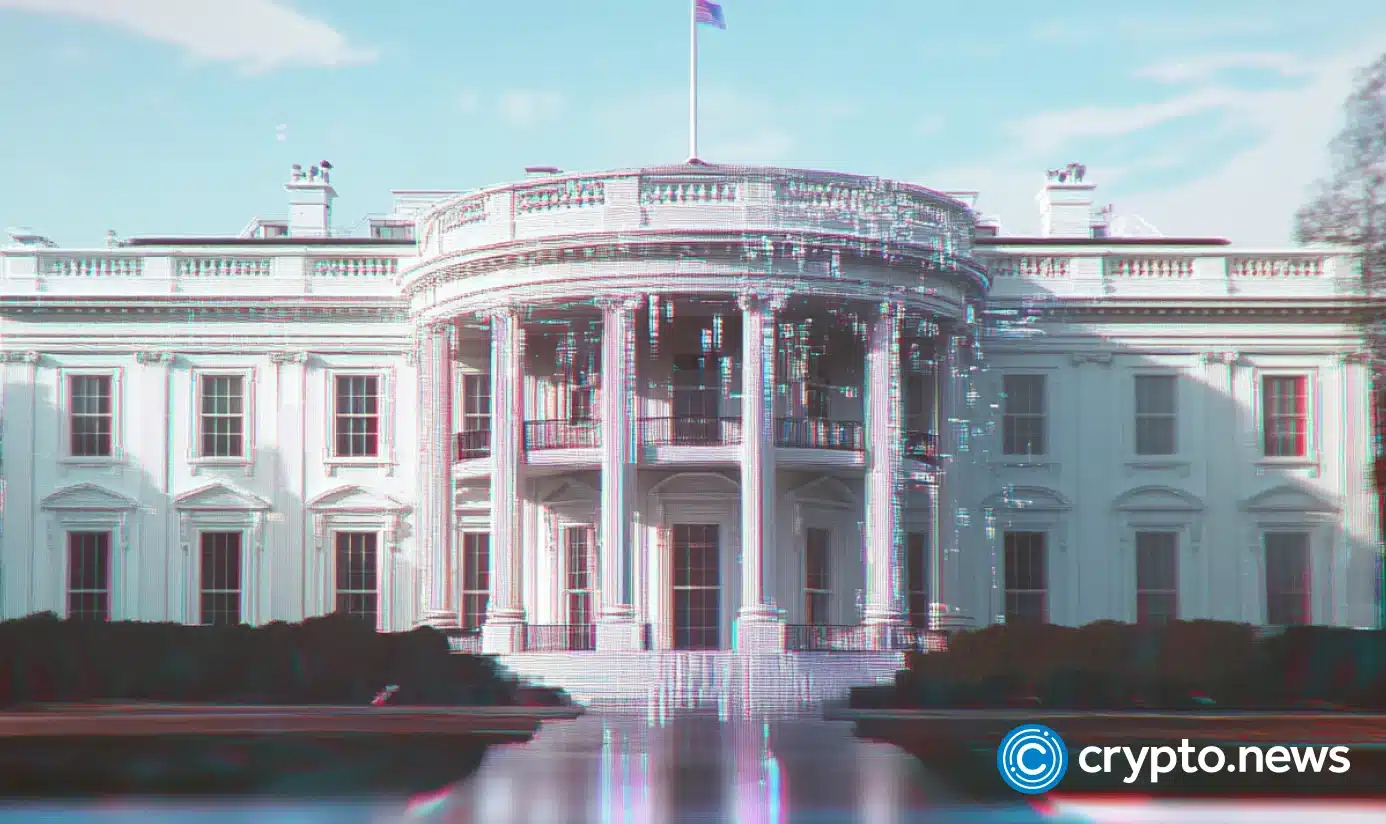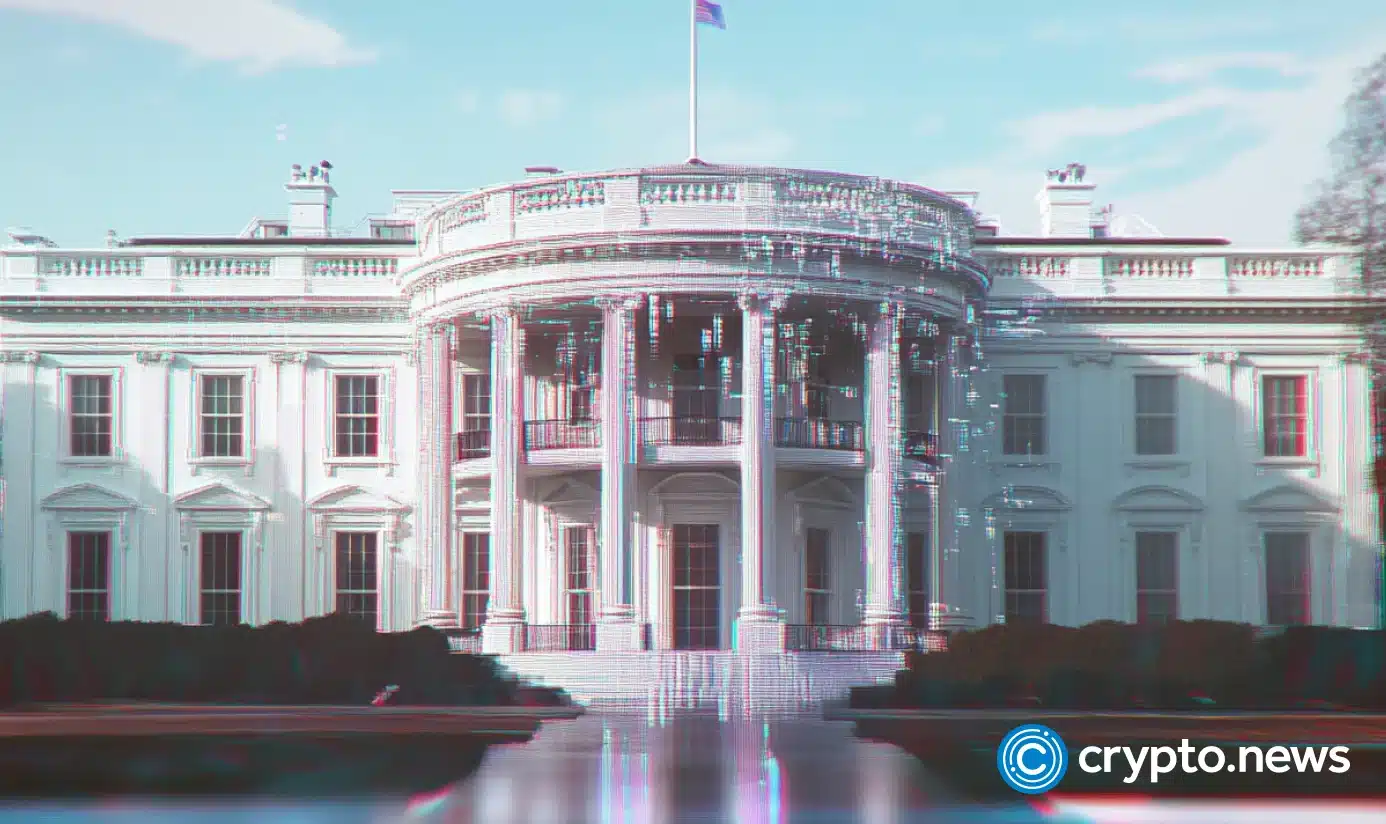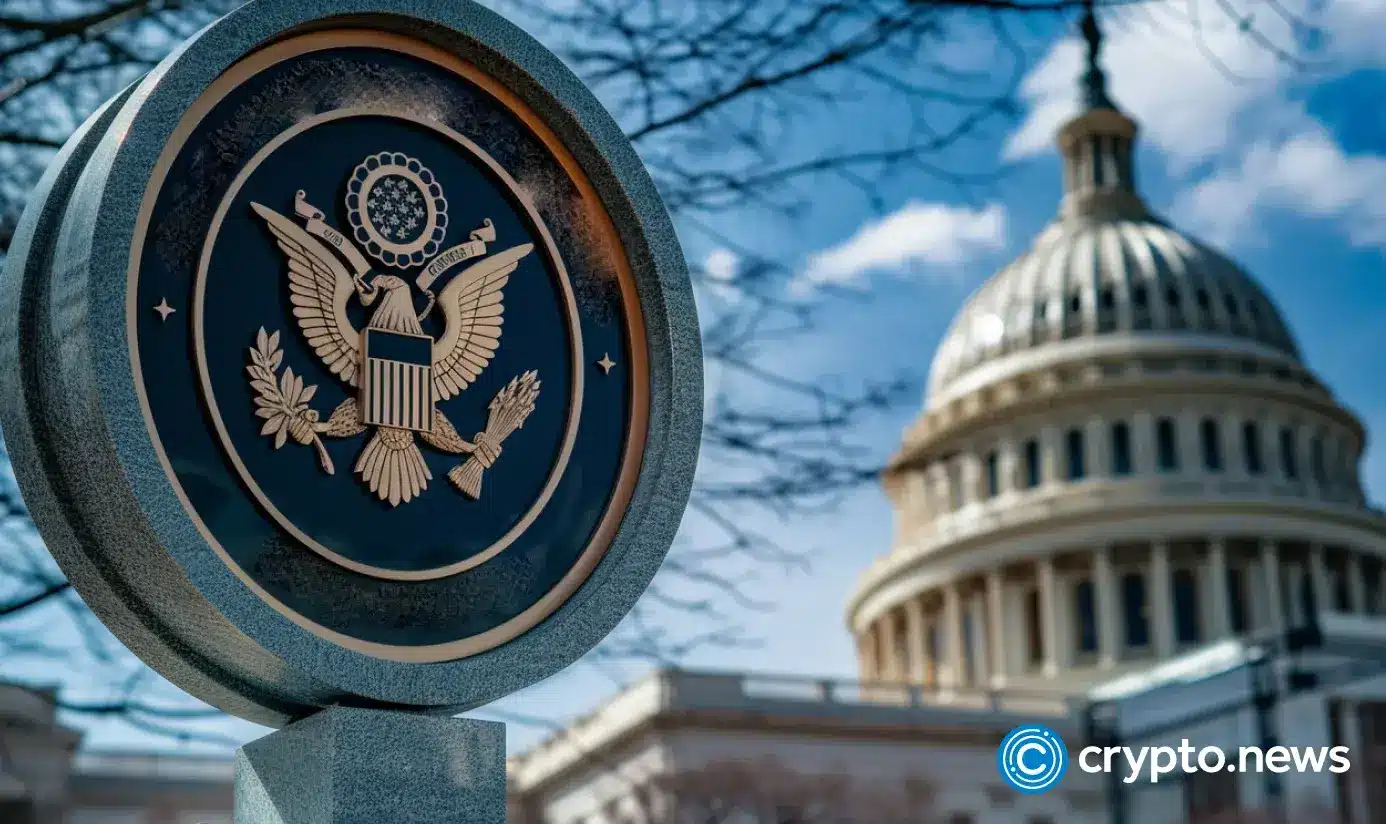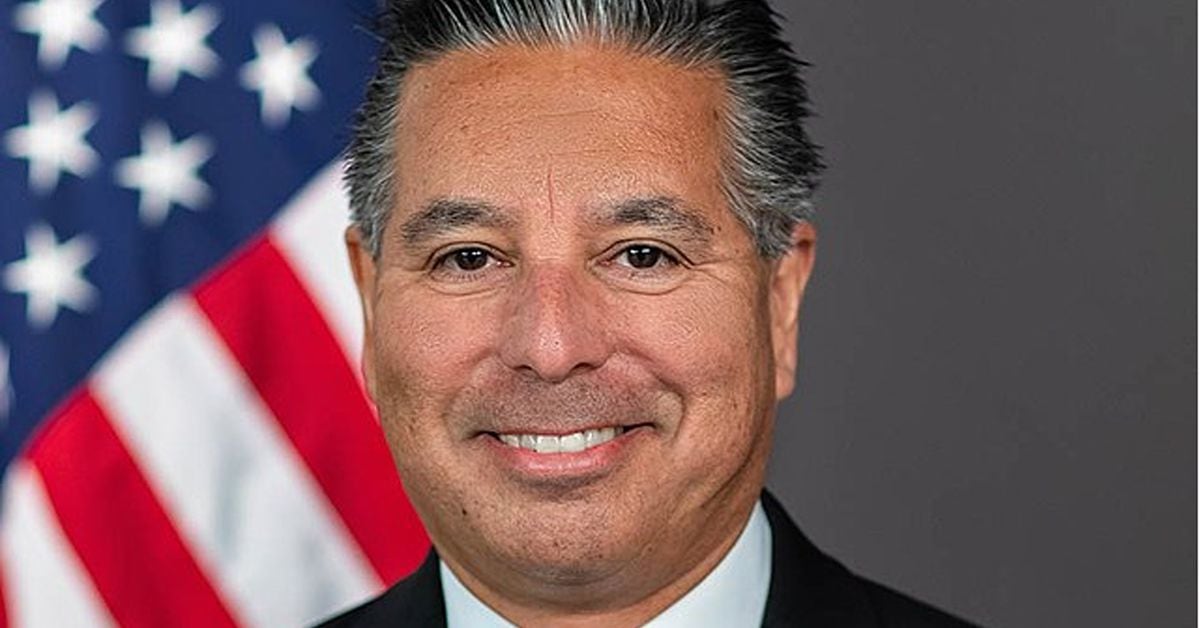Donald Trump
World's Largest Prediction Market Polymarket Is Trump Biased
Published
1 month agoon
By
admin


Seeing Bitcoin’s price rally as Donald Trump takes the lead on the world’s largest prediction market, Polymarket, made me do some research on what Polymarket is and who uses it.
And now I have to say — I believe that Polymarket leans pro-Trump. We need to account for that bias, and here’s why.
Let’s look at some data. Polymarket shows Trump surging to a massive 28% lead over Harris. Another prediction marketplace, Kalshi, also shows Trump leading by 18%. Meanwhile, most other polls have a tight race. This huge skew makes no sense – unless Polymarket’s user base is disproportionately pro-Trump.
JUST IN: 🇺🇸 Pro-#Bitcoin Donald Trump takes the biggest lead in the election so far, up by 28.8% in the odds: Polymarket pic.twitter.com/0m1FOG2pNL
— Bitcoin Magazine (@BitcoinMagazine) October 22, 2024
Which it is. Polymarket only allows crypto betting and blocks US users. This filters its audience toward offshore Bitcoin and crypto enthusiasts or US crypto users who use VPNs, and studies show that crypto users tend to lean conservative.
And with Trump pledging to Implement crypto-friendly policies, he is a no-brainer for Bitcoin and crypto users.
Some add that Trump’s bets are part of “a coordinated effort to change the perception of this race.”
This may also be the case, but it should be clear that Polymarket polls are biased.
Does this make Polymarket corrupt? I don’t think so. It offers insightful predictive data and it’s a free market platform where anyone can bid if they think otherwise. Which makes it one of the best tools to know the market sentiment.
But anything showing Trump or Harris with a massive lead at this point in the election should warrant scepticism. Traders can recognise and exploit this bias. I’d look to buy Harris, anticipating the race tightening as election day nears. Polymarket odds should normalise closer to even odds.
In summary, Polymarket caters to Trump-friendly Bitcoin and crypto crowds, which distorts its election odds substantially compared to other polls. Knowing this, some people can capitalise accordingly.
This article is a Take. Opinions expressed are entirely the author’s and do not necessarily reflect those of BTC Inc or Bitcoin Magazine.
Source link
You may like


Trump taps crypto bros to be in charge: What’s at stake?


Charles Schwab Looking at Spot Crypto Trading Following Regulation Shift: Report


Here’s Why XRP Price Will Hit $20


3 cryptos under $0.5 that experts believe could deliver 1500% returns


Gemini’s Cameron Winklevoss Demands Fresh Probe Into SBF


Dogecoin Jumps to 3-Year High Price—Before Bitcoin Cools and Meme Coins Plunge
Donald Trump
Trump taps crypto bros to be in charge: What’s at stake?
Published
1 hour agoon
November 24, 2024By
admin

As President-elect Donald Trump prepares for a second term, his incoming administration has already nominated several crypto-friendly faces for key leadership roles.
Voters who bought into the Republican rhetoric that the Biden administration led a so-called “war on crypto” are likely excited. After all, Trump is the first elected official to hawk his own digital currency.
While cryptocurrency awareness is relatively high in the U.S., most Americans remain disinterested. According to a Pew Research study, roughly six-in-10 Americans (63%) say “they have little to no confidence that current ways to invest in, trade or use cryptocurrencies are reliable and safe.”
But with the U.S. Securities and Exchange Commission poised for an overhaul, and a slate of cryptocurrency advocates (listed below) jockeying for cabinet or council positions, the era of crypto cronyism within the U.S. executive branch is upon us — whether Americans like it or not.
What could go wrong?
Scott Bessent
Trump’s nominee for Treasury Secretary, Scott Bessent, is a well-known cryptocurrency advocate. The former Soros Fund Management CIO made headlines when he expressed excitement about crypto’s potential to revolutionize finance, aligning it with Republican ideals of freedom and innovation.
The 62-year-old hedge fund manager has been vocal about distancing crypto’s future from the likes of Sam Bankman-Fried, framing Bitcoin (BTC) as a unifying economic opportunity for younger generations disillusioned by traditional markets.
Should Bessent be at the helm of the Treasury, he would likely shake up digital assets and reduce the risk of severe tariffs.
Howard Lutnick
Cantor Fitzgerald CEO Howard Lutnick, Trump’s pick for Commerce Secretary, is reportedly in talks with Tether, the largest stablecoin operator, to spearhead a $2 billion lending initiative.
Known for steering Cantor Fitzgerald into crypto trading, Lutnick’s embrace of digital assets demonstrates his knack for blending traditional finance with emerging technologies. If the Tether partnership materializes, it could expand access to capital while deepening the role of stablecoins in global financial systems under Lutnick’s leadership.
Thank you, President Trump for your trust in me to help Make America Great Again. As the next Secretary of Commerce, I will join the best administration the US has ever seen and unleash our full economic potential. pic.twitter.com/CTr0sdH6nt
— Howard Lutnick (@howardlutnick) November 19, 2024
Elon Musk and Vivek Ramaswamy
Trump’s audacious proposal to create the “Department of Government Efficiency” (DOGE) has drawn attention not just for its acronym, but for the crypto bulls that wish to be at the helm.
Tesla CEO Elon Musk, a longtime proponent of Dogecoin (DOGE), and biotech entrepreneur Vivek Ramaswamy are tasked with slashing $2 trillion annually from federal programs like Medicare and Social Security. Ramaswamy has proposed deleting entire agencies.
There are well over 400 Federal agencies.
I was once in a meeting with a new agency that was being formed, but it didn’t have a name yet.
The reason it didn’t have a name was that all the good acronyms were taken! https://t.co/0Xvei7nWln
— Elon Musk (@elonmusk) November 21, 2024
While Congress must greenlight the department’s formation, it’s worth noting that it’s a real possibility considering the GOP’s majority in the U.S. Senate and the House of Representatives.
Brad Garlinghouse
Ripple (XRP) CEO Brad Garlinghouse praised Trump for nominating Bessent as “Treasury Sec.”
I don’t want to get too far ahead of myself but…
Scott Bessent is the perfect pick by @realdonaldtrump!
He will be the most pro-innovation, pro-crypto Treasury Sec we’ve ever seen
— Brad Garlinghouse (@bgarlinghouse) November 23, 2024
But Garlinghouse, himself, is a prominent player in Trump’s crypto strategy. He reportedly held discussions with Trump’s inner circle, suggesting he could — or has had — some say in hiring decisions.
In addition to advocating for the removal of SEC Chair Gary Gensler, Garlinghouse envisions a digital asset market structure bill moving forward in the Senate.
Brian Armstrong
Coinbase CEO Brian Armstrong met with Trump, according to Reuters. While it’s unclear what they discussed, reports suggest Armstrong is keen on joining Trump’s planned Bitcoin and crypto presidential advisory council.
Either way, Armstrong is voicing his thoughts on who should be in charge. Earlier this month, he tossed out the idea of replacing Gensler with SEC commissioner Hester Peirce, aka “Crypto Mom” in the crypto world, who’s been throwing some serious shade at Gensler’s crackdown.
And if Peirce isn’t available, there’s always Republican SEC commissioner Mark Uyeda, who once teamed up with her to rebuke the agency for what they consider “misguided and overreaching” cases against crypto companies.
Jeremy Allaire
Allaire, the chief executive of the crypto company Circle, is also interested in joining the council. According to the New York Times, Allaire and other crypto pros are hounding Trump’s camp for more information.
Allaire was even excited when Trump said he wasn’t a fan of Bitcoin back in 2019.
Possibly the largest bull signal for BTC ever. Crypto now a Presidential / Global policy issue. People everywhere will embrace a mix of sovereign and non-sovereign digital currency. https://t.co/PK79wmCddM
— Jeremy Allaire – jda.eth / jdallaire.sol (@jerallaire) July 12, 2019
Other entrepreneurs are following Allaire’s lead. One executive told the Times on background that he’s “harassing everyone” he knows in Trumpworld with the hope of landing a seat on the crypto council.
Source link
Donald Trump
Gensler to resign as SEC chair: What’s next under Trump?
Published
22 hours agoon
November 23, 2024By
admin

Gary Gensler, the high-profile and often polarizing chair of the U.S. Securities and Exchange Commission, announced his resignation, effective the day President-elect Donald Trump takes office.
Here’s the announcement on X:
On January 20, 2025 I will be stepping down as @SECGov Chair.
A thread 🧵⬇️
— Gary Gensler (@GaryGensler) November 21, 2024
Gensler’s decision is hardly unexpected for those attuned to Washington’s political rhythms. Leadership changes at federal agencies often coincide with the arrival of a new administration, especially when there’s an ideological shift.
Here’s a closer look at the situation.
Gensler’s crackdown on crypto
Although Gensler’s term was slated to run through 2026, his resignation aligns with these unwritten rules of political transitions.
Gensler’s tenure, which began in 2021 under President Joe Biden, has been anything but uneventful. Known for his bold and uncompromising regulatory stance, he led an unprecedented crackdown on the crypto industry—a sector he once described as “rife with fraud and hucksters.”
Under his leadership, the SEC initiated a record 46 enforcement actions against crypto-related entities in 2023 alone, a 53% increase from 2022.
Some of the crypto-related lawsuits filed seemed reasonable. For example, the SEC’s case against Terraform Labs involved allegations of a massive fraud scheme. In June, a federal jury ruled against Terraform and its co-founder Do Kwon. They were ordered to pay over $4.5 billion in penalties, the largest ever imposed in a crypto-related case.
While some applauded his efforts to bring order to the industry, Gensler’s critics often accuse him of regulatory overreach and stifling innovation, particularly when it comes to cases against Ripple (XRP) and Coinbase.
Trump, whose family launched a crypto startup this year, vocalized his disdain for Gensler on the campaign trail and pledged to replace him “on day one.”
Dan Gallagher, Robinhood Markets’ chief legal officer, was considered a possible replacement for Gensler, but he is no longer interested.
As the SEC prepares for this leadership change, the agency faces critical questions about its future direction. What does Gensler’s departure mean for financial regulation in the U.S.? Who will take the reins, and how will their approach shape the nation’s financial landscape?
When Gensler confirmed his resignation, social media — particularly crypto enthusiasts populating X — erupted with tweets that ranged from bitter resentment to cautious relief.
Many within the crypto community didn’t hold back, particularly supporters of Ripple. Known as the “XRP Army,” they had long blamed Gensler for the SEC’s aggressive lawsuit against Ripple Labs, which tanked the value of XRP and dragged the community into a years-long legal battle.
“Congratulations to the XRP Army—this is the moment we’ve been waiting for,” one XRP supporter tweeted.
Congratulations to the XRP army on the one wish that we wanted for the past four years!
Yes, I am part of the XRP army.
— Tom Homan – Border Czar (Commentary account only) (@TomHoman_) November 21, 2024
Criticism extended beyond XRP, with retail investors calling Gensler’s tenure “the most destructive period in SEC history.” They cite his initial resistance to approving a Bitcoin (BTC) ETF and his handling of smaller investor disputes, such as the MMTLP stockholder case.
Adding to the backlash, the same post referenced a federal judge’s reported reprimand of the SEC in another enforcement case, framing it as a reflection of Gensler’s heavy-handed and controversial approach.
“Thank you for protecting no one from actual scams. You set America back years in crypto,” another social media user quipped.
Thank you for protecting no one from actual scams. You were a complete failure and you set america back years in crypto.
— Chainlink Red Pill (@ChainlinkP) November 21, 2024
High-profile industry figures also joined the chorus of criticism. Justin Sun, the founder of Tron (TRX), took a harsher tone, calling Gensler’s resignation “too late” and lamenting the “massive damage” he allegedly inflicted on U.S. markets and the global economy.
Finally, the end of an era—though, Gary, it’s a little too late. The damage is done, and it’s massive, scarring U.S. markets, the global economy, and everyday people. Let’s hope the next chapter brings accountability. If you need a job, contact me!
— H.E. Justin Sun 🍌 (@justinsuntron) November 22, 2024
In the end, Gensler’s exit isn’t just the close of a contentious chapter; it’s the start of a critical transition for the SEC and the industries it oversees.
Who will lead the SEC next?
With Gensler’s resignation, the focus is shifting to who will succeed him—a decision that could reshape the future of crypto regulation in the U.S.
Journalist Eleanor Terrett of Fox Business has suggested that the next SEC chair may bring a fresh outlook on crypto.
🚨I’ve been told by sources close to the transition team that the new @SECGov chair will be pro-crypto, the nominee will also have to be well-equipped to handle all the other issues under the SEC’s purview — public companies, the stock market, the bond market, private funds, the… https://t.co/iIRrhwvSxx
— Eleanor Terrett (@EleanorTerrett) November 15, 2024
According to her sources, the incoming administration is prioritizing a candidate who is “pro-crypto” yet equipped to handle the SEC’s broader responsibilities, including oversight of public companies, stock and bond markets, and private funds.
Among the leading contenders is Paul Atkins, a former SEC commissioner known for his free-market philosophy and favorable stance on crypto.
Charles Gasparino of Fox Business reported that Atkins is currently viewed as a frontrunner, buoyed by strong support from both the business and crypto communities.
SCOOP: Former SEC commission Paul Atkins is said to be in the lead position to replace @GaryGensler as @SECGov chair, according to a person with direct knowledge of the matter. As with all things in Trump World this could change, of course. Fox Business has previously reported…
— Charles Gasparino (@CGasparino) November 21, 2024
Atkins’ approach stands in stark contrast to Gensler’s enforcement-heavy style. While critics argue that Atkins may be too lenient, his supporters believe his leadership would promote innovation by lowering regulatory barriers.
Another prominent name in the running is Robert Stebbins, a partner at Willkie Farr & Gallagher and former SEC General Counsel under Jay Clayton.
Scoop: A name that’s gaining steam in the race for @SECGov Chair is Robert Stebbins, a partner at Wilkie Farr & Gallagher, and former SEC General Counsel under Jay Clayton, nominee for US Atty Southern District. Keep an eye on this name.
— Charles Gasparino (@CGasparino) November 15, 2024
Stebbins is widely regarded as a steady and pragmatic candidate, offering deep legal and regulatory expertise. While his pro-crypto stance is less favorable than Atkins’, his previous experience at the SEC gives him credibility with both policymakers and financial institutions.
Teresa Goody Guillén is also emerging as a potential candidate. A veteran of the SEC and a partner at BakerHostetler, where she co-leads the blockchain practice.
🚨 BREAKING NEWS: @realDonaldTrump is considering blockchain lawyer Teresa Goody Guillén to replace Gary Gensler as head of the SEC.
Teresa has represented many blockchain companies against the SEC in her time as co-lead of BakerHostetler’s blockchain group.
She spent time in… pic.twitter.com/bg8fj8XZMS
— Dylan K (@MightyDylanK) November 20, 2024
Crypto companies are reportedly advocating for her nomination, confident that her dual experience as an SEC insider and blockchain advocate would bring a balanced perspective to the role.
Brian Brooks, the former Acting Comptroller of the Currency, is another notable name being floated for key financial regulatory positions, including the SEC chair.
🚨NEW: FOX Business has learned that former OCC Acting Director under Trump @BrianBrooksUS is on the lists for “various financial agency roles besides the CFTC”, according to a source close to him.
Outside the CFTC, some of the other financial regulatory agencies are the…
— Eleanor Terrett (@EleanorTerrett) November 18, 2024
Dubbed the “Crypto Comptroller” for his blockchain-friendly policies during his tenure at the OCC, Brooks has been a vocal proponent of integrating crypto into mainstream banking.
While Terrett noted that Brooks is under consideration for multiple roles beyond the SEC, his appointment here could signal a transformative period for crypto regulation.
Interestingly, the shakeup may not be limited to the SEC. Terrett suggests that the Trump administration is exploring an expanded role for the Commodity Futures Trading Commission in crypto oversight.
Such a move could involve splitting regulatory responsibilities between the SEC and CFTC—or even transferring primary authority to the CFTC entirely.
However, as Terrett pointed out, this shift would require a colossal increase in funding for the CFTC, which currently lacks the resources to manage such an expansive mandate. For now, speculation continues.
Preparing for the change
Gensler’s resignation has left crypto industry insiders speculating about what lies ahead, with many experts pointing to a mix of challenges and opportunities.
Slava Demchuk, CEO of AMLBot, in a conversation with crypto.news talked about one of the most pressing issues: the lack of clear rules for crypto in the U.S., especially compared to the EU’s Markets in Crypto-Assets Regulation.
“Without clear regulations, crypto companies have been left in limbo, unable to fully understand compliance requirements or attract major institutional players.”
One particularly thorny problem is crypto companies’ struggles to access banking services. Niko Demchuk, Head of Legal at AMLBot, described how banks in the U.S. are often hesitant to work with crypto firms due to the risk of regulatory fallout.
“Banks don’t want to associate with companies that might be out of compliance. Even indirect ties to crypto can bring scrutiny or fines, creating bottlenecks for the industry, making it difficult for businesses to perform everyday financial operations.”
If the next chair adopts a more crypto-friendly stance, there’s potential for key improvements, including clearer regulations, better access to banking, and a more welcoming environment for innovation.
The prospect of a regulatory framework similar to the EU’s MiCA is also gaining traction. Experts believe that such a framework could bring greater consistency to the U.S. market, addressing issues like cybersecurity, anti-money laundering, and market manipulation.
For crypto companies, this transitional period is an opportunity to get ahead and focus on strengthening compliance systems, enhancing know-your-customer processes, and investing in tools like transaction monitoring.
“Businesses need to be proactive. Regulatory changes are coming, and those who are prepared will have a smoother adjustment,” Demchuk added.
For crypto firms, the time to act is now—because what comes next could reshape the future of the crypto industry in the U.S. and across the globe.
Source link
Donald Trump
Another U.S. SEC Democrat to Drop Out, Leaving Republicans Running Agency by February
Published
1 day agoon
November 23, 2024By
admin

Commissioner Jaime Lizárraga is leaving January 17, he said in a Friday statement, which could give Republicans a head start on what could otherwise have been months of delay in redirecting the regulator’s policies — including on cryptocurrency. At this point, Caroline Crenshaw will be the sole Democrat on the five-member commission going into 2025, and her term has already expired, putting her into an extension that can last as long as about 18 months.
Source link

Trump taps crypto bros to be in charge: What’s at stake?

Charles Schwab Looking at Spot Crypto Trading Following Regulation Shift: Report

Here’s Why XRP Price Will Hit $20

3 cryptos under $0.5 that experts believe could deliver 1500% returns

Gemini’s Cameron Winklevoss Demands Fresh Probe Into SBF

Dogecoin Jumps to 3-Year High Price—Before Bitcoin Cools and Meme Coins Plunge

Crypto cops record $8.2b in financial remedies for investors: SEC

Stellar Price Skyrockets Over 80%, XLM Rally to $1 Imminent?

Elon Musk Tweet of Joe Rogan Profile Sends DOGE Price Higher

Survival of the healthiest: Creating a successful crypto

Cardano Hydra Unveils Gamified Test Campaign, ADA Price Reacts

The DeFi duo with potential to multiply a crypto portfolio

Bitcoin Rally Benefits From US Buyers

BTC Continues To Soar, Ripple’s XRP Bullish

Ethereum whales accumulate RCO Finance after 2025 predictions hint at a 19,405% rally
182267361726451435

Why Did Trump Change His Mind on Bitcoin?

Top Crypto News Headlines of The Week

New U.S. president must bring clarity to crypto regulation, analyst says

Ethereum, Solana touch key levels as Bitcoin spikes

Bitcoin Open-Source Development Takes The Stage In Nashville

Will XRP Price Defend $0.5 Support If SEC Decides to Appeal?

Bitcoin 20% Surge In 3 Weeks Teases Record-Breaking Potential

Ethereum Crash A Buying Opportunity? This Whale Thinks So

Shiba Inu Price Slips 4% as 3500% Burn Rate Surge Fails to Halt Correction

‘Hamster Kombat’ Airdrop Delayed as Pre-Market Trading for Telegram Game Expands

Washington financial watchdog warns of scam involving fake crypto ‘professors’

Citigroup Executive Steps Down To Explore Crypto
Mostbet Güvenilir Mi – Casino Bonus 2024

Bitcoin flashes indicator that often precedes higher prices: CryptoQuant
Trending

 2 months ago
2 months ago182267361726451435

 Donald Trump4 months ago
Donald Trump4 months agoWhy Did Trump Change His Mind on Bitcoin?

 24/7 Cryptocurrency News3 months ago
24/7 Cryptocurrency News3 months agoTop Crypto News Headlines of The Week

 News3 months ago
News3 months agoNew U.S. president must bring clarity to crypto regulation, analyst says

 Bitcoin4 months ago
Bitcoin4 months agoEthereum, Solana touch key levels as Bitcoin spikes

 Opinion4 months ago
Opinion4 months agoBitcoin Open-Source Development Takes The Stage In Nashville

 Price analysis4 months ago
Price analysis4 months agoWill XRP Price Defend $0.5 Support If SEC Decides to Appeal?

 Bitcoin4 months ago
Bitcoin4 months agoBitcoin 20% Surge In 3 Weeks Teases Record-Breaking Potential


